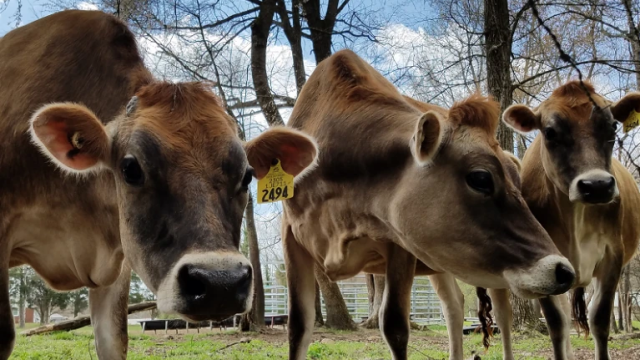How To Be An Agvocate

Are you an agvocate? Someone who advocates for agriculture? When you share helpful information about your farm you enter the world of agvocacy. Agvocacy helps educate others, especially the non-farming public, about farm life, farming practices, and how food is grown.
“Everybody can agvocate,” says Marlowe Ivey Vaughan, executive director of Feed the Dialogue NC Foundation, which has as its mission the commitment to provide to the general public informative, educational information about North Carolina agriculture. “You don’t have to have a communications degree to talk about agriculture. Farmers are the experts. There are studies that show that the consumer trusts the farmer.”
Marlowe shares these helpful tips:
- Who – Everybody can play a role. With platforms like social media it’s easy and free to create your own personal farm page and start talking about agriculture. I see no reason why everybody in agriculture can’t help be part of that voice. We are so diversified here in North Carolina and we have a huge opportunity to connect with the urban community.
- What – Don’t stress about digging deep into details. People just really want to know basic facts like how long it takes a chicken to lay an egg, how long it takes to get a turkey to your Thanksgiving table, why some farmers grow different row crops, why vegetable growers use certain types of practices. Talk about what you know and keep it brief. Just because farming practices may seem basic to you doesn’t mean others aren’t interested.
- When – While “every day” is Marlowe’s first response, she is also a farmer and recognizes how busy farmers are. With social media you can post anytime you want. Don’t get hung up on when; it’s more about the message you are putting out there. Being constant, transparent and continuous is important with promotional efforts.”
- Where – While most folks are online and on social media these days, your community connections such as civic clubs, doctors’ offices, and teachers can be a good start in reaching out and connecting with people who aren’t in the agricultural sector. Agvocating is a personal commitment; consider what the best fit is for you and your time.
- Why – Everybody eats three times a day but unfortunately the average consumer is 4 to 7 generations removed from the farm. Unfortunately, other groups target messages against agriculture, especially animal agriculture, with misinformation. Feeding the world and educating people about their food system is part of national security in a sense.
- How – Whether you are a savvy social media user or just getting started, helpful resources can help you expand your informational and educational agvocacy efforts. Follow other platforms that are already engaging and share their messages. For example, Feed the Dialogue, posts professional videos about North Carolina agriculture and encourages you to share their videos on your own social media pages.
A few other how-to tips:
Take advantage of your cell phone technology. You don’t have to be a professional video producer to snap a photo or take a 30-second simple video and show people what you are doing on the farm. Simple videos shot with your phone on your farm are relatable and believable.
Seek help from Feed the Dialogue, which is available to help farmers and other agvocates get started. Currently, due to Covid, training sessions are available virtually through Zoom conferences on an as-needed basis. Contact them through their website or at info@feedthedialoguenc.com.
Learn how to handle situations such as activists who may speak negatively against agriculture. If someone posts something negative on your site, Marlowe recommends knowing who your audience is. Some people may genuinely ask questions to gain more knowledge. “I call these people the moveable middle who just have concerns and an interest in where their food comes from. Those are the people to engage with. Be polite and tell them what you do on your farm or why you support a certain practice. Trolls are those who seem to keep nitpicking and questioning without a sincere desire to learn. Rise above their pettiness and don’t let them drag you into a negative conversation,” Marlowe advises.
Written By: Leah Chester-Davis